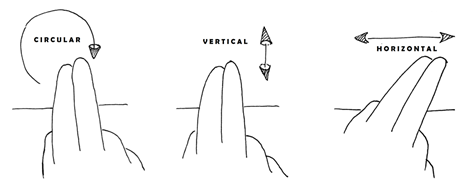Information for patients
This information sheet answers common questions about wound care advice after having skin surgery. If you would like further information, or have any particular worries, please do not hesitate to ask your surgeon.
In all cases, the surgeon will explain the instructions verbally to you and answer any questions you may have during the appointment.
Will I be in pain?
- Pain is expected after skin surgery once the effect of local anaesthetic has worn off, which is usually after 2 hours.
- Pain usually tends to worsen second or third day after surgery and improves thereafter.
Recommendation:
- Regular over-the-counter painkillers such as Paracetamol and/or Ibuprofen are suitable to control pain, if there are no known allergies.
Will I have swelling or bruising?
- It is normal to develop swelling and bruising after surgery.
- Swelling may increase on the second or third day after surgery and resolves in about 7-10 days’ time.
- Bruising tends to last longer than the swelling and is completely harmless.
Recommendation:
- Ice-packs may be used over the surgery site in the first 24-48 hours to reduce the amount of swelling and bruising.
- Keep your head elevated using multiple pillows to reduce swelling.
Will I have bleeding?
- Minimal bleeding or oozing may occur in the first 24 hours of the surgery which usually does not require attention.
- Some blood stains on the dressing, clothes and bed linen when you sleep can be expected.
- Some medications may increase the risk of bleeding—please discuss this with the surgeon.
Recommendation:
- Avoid strenuous exercise or activity and any heavy lifting for at least 72 hours.
- If bleeding is continuous or heavy, apply firm continuous pressure on the site of bleeding using the provided clean damp gauze for at least 15 minutes.
- If the bleeding continues, apply pressure for further 15 minutes.
- Contact the emergency numbers given at the end of this leaflet if bleeding continues in spite of the above measures.
How do I care for my stitches or dressing?
- Your surgeon has placed dissolving / non-dissolving stitches.
- Dissolving stitches tend to disappear in about 7-10 days’ time. Although some stitches may stay longer.
- Non-dissolving stitches will need to be removed in 7-10 days’ time by the GP practice / Dressing clinic.
- On occasions, special dressing or skin graft is placed which may require the dressing to be placed for a longer period.
Recommendations:
- Keep wound dry for a minimum period of 24 hours / 48 hours / until the next review.
- If dressing is placed on the wound, leave it until it falls off on its own.
- After this period, the wound should be gently cleaned with soap and water twice a day and the area should be patted dry with a clean towel.
Will I have a scar?
- You will have a noticeable scar to begin with, which tends to fade and improve over time.
- The size and shape of the scar will depend on the extent and complexity of the surgery.
- It is normal for some patients to worry about the size and shape of initial wound. However, skin healing is slow and scars generally tend to settle by about 6-12 months’ time.
- The surgeon will take utmost care to minimise scarring during surgery.
Recommendation:
- Scar massaging using a suitable moisturiser is recommended after 7 days, three times daily for 5 minutes for up to 6 months’ time.
- Massage scar with the bulbs of your index and middle finger applying firm continuous pressure in various directions as shown.
- Silicone sheets and gels available over-the-counter are also suitable to reduce scarring after surgery and may be used according to manufacturer’s instructions.

Will I need more treatment?
- Depending upon the final results, you may or may not require further treatment in the form of surgery or radiotherapy.
- Your surgeon will discuss the results and advise any further steps which may be required.
- In general, anyone with skin cancer has a 4 in 10 chance of developing another skin cancer.
Recommendations:
- Avoid going out into direct sunlight and stay in shade as much as possible.
- Cover exposed areas of skin with comfortable clothing, sunglasses and a wide brimmed hat.
- Wear sun-protection cream SPF50 and above—apply thick even layer to all sun-exposed parts of the body.
Emergency contact numbers
Monday to Friday – 9 am to 5 pm – 01582 718062
Monday to Friday – 5 pm to 9 am and during weekends – Please phone the main hospital switchboard on 01582 491166 and ask for On-call Oral and Maxillofacial doctor.
Online resources
Removal of facial skin lesion – BAOMS
Understanding skin cancer – MacMillan Cancer Support
